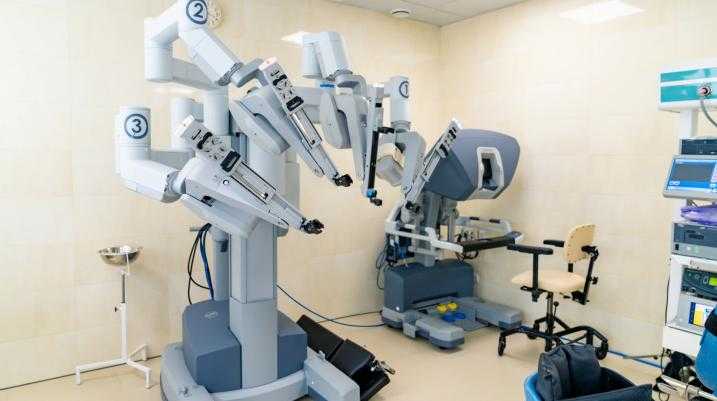Investigating the Risks of the da Vinci Surgical Robot

There have been an increasing number of complaints of complications, including burns, punctured vessels or organs, excessive bleeding and deaths, which are believed to be associated with the use of the da Vinci surgical robot during surgery. In response to the rise in complaints and concern over the safety of its use, the FDA has launched an investigation to determine whether Intuitive Surgical, Inc.’s device is responsible for the allegations in the complaints.
Manufacturer Warns of da Vinci Burn Risk
In May 2013, Intuitive warned hospitals that a component used in its da Vinci surgical robot system may be putting patients at risk for burn injuries. According to the company’s urgent notification, some versions of the system’s Hot Shears may be prone to small cracks, potentially creating a pathway for an electro-surgical charge. Unfortunately, the cracks may not be visible. The company has already received one report of injury linked to a cracked instrument. Despite the risk, the company has elected not to recall the Hot Shears and announced that it would begin to remove the affected instruments from hospitals when a replacement becomes available. It is estimated that this will begin between two to four weeks from the date of the company’s notification.
Uses of the da Vinci Surgical Robot
The da Vinci surgical robot, manufactured by Intuitive Surgery, is an alternative surgical method to laparoscopic procedures and has increasingly gained popularity with hospitals since its FDA approval in 2000.
The robot is designed to perform minimally invasive surgery in procedures including urologic, laparoscopic, gynecological and non-cardio theracoscopic surgical procedures.
Some examples in which the robot has been chosen over its alternative procedure, laparoscopic surgery, include:
- Complete or partial hysterectomies
- Treatment of uterine fibroids
- Kidney disorders
- Prostate removal procedures
- Throat and kidney cancers
- Endometriosis
- Heavy intrauterine bleeding
- Surgeries to reduce obesity
It is often chosen by hospitals and doctors over laparoscopic surgery due to Intuitive’s claims that the procedure is as safe as laparoscopic surgery, yet reduces recovery time in patients.
There have been no conclusive studies showing the da Vinci robot is a better or safer choice for doctors performing minimally invasive procedures—in fact, there are many signs that indicate its negative attributes outweigh its benefits.
Costs of the robot significantly outweigh those of laparoscopic surgeries, surgery takes longer, and recovery times have not been proven to be substantially shorter than other similar procedures. Additionally, there have been no conclusive studies that the robot is a safer or better choice than other minimally invasive procedures. A study being released soon blames a lack of testing prior to distribution for many of the complications which have arisen.
Allegations and Complaints
Despite the popularity of the da Vinci surgical robot, the number of complaints concerning complications stemming from the use of the device have been on the rise.
Complaints against the manufacturer allege design flaws in the device including un-insulated surgical arms that cause burns, as well as electrical currents that can deviate from the intended surgical route to healthy organs and tissue, damaging them in the process.
Additionally, the complaint alleged the manufacturer of failing to warn healthcare professionals and potential patients of the risks that can be involved in its use.
Complications or errors that have been referred to in lawsuits and through witness interviews include:
- Burns
- Punctured vessels or organs
- Uterus lacerations
- Intestinal tearing
- Excessive bleeding
- Death
Unfortunately, complications from the surgery may not be evident until days after the procedure is completed, which uses up valuable time which could be used to treat the injury.
Some reports of life-threatening or deadly complications include:
The death of a woman 13 days after a procedure using the device during a routine hysterectomy. The parents of the woman claim she suffered bleeding from the laceration of a main artery by the robot during surgery, which caused blood to flow from and between her legs, requiring nurses to catch the blood in bottles.
Two women were hospitalized for weeks after what was supposed to be “routine” gynecological surgery involving a da Vinci robot.
A girl suffered severe internal burns to her intestines and an artery during a routine hysterectomy. She died two weeks later, prompting her parents to file a wrongful death lawsuit.
Response to da Vinci Safety Complaints
Intuitive, taking an unprompted step to mitigate the situation, sent replacement tip covers to all hospitals with the device. While the original tips were not deemed defective, the company requested the switch from the existing tips immediately to reduce the chance of sparking. However, surgeons who have observed the use of the device do not believe the tip of the robot to be a problem.
Instead, their observations led them to believe the burns stems from the scissor blade. Intuitive stands firm in their belief that the da Vinci device is no more dangerous than traditional laparoscopic devices, which they claim could cause similar issues during surgery.
Learn more about how our attorneys help people with class action cases.
Injured? Getting the compensation you deserve starts here.

Injured?
Not sure what to do next?
We'll guide you through everything you need to know.